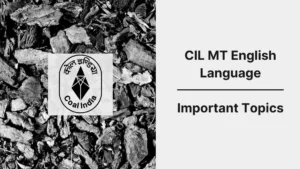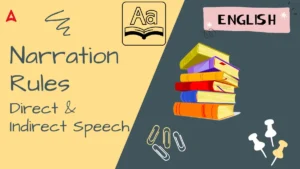Directions (1-10): Read each sentence to find out whether there is any grammatical or idiomatic error in it. The error, if any, will be in one part of the sentence. The number of that part is the answer. If there is ‘No error’, the answer is (e). (Ignore errors of punctuation, if any.)
Q1. If you do not (a) / submit the report (b) / in the next two days (c) / all of us will be punished. (d) / No Error. (e)
(a) a
(b) b
(c) c
(d) d
(e) e
Q2. These days Ashok along with (a) / his friends does not go (b) / to a walk (c) / in the morning. (d) / No Error. (e)
(a) a
(b) b
(c) c
(d) d
(e) e
Q3. I have been visiting your office (a) / since last several years (b) / but have never met (c) / such a hopeless clerk as this. (d) / No Error. (e)
(a) a
(b) b
(c) c
(d) d
(e) e
Q4. As there was no time (a) / the remaining items (b) / were deferred into (c) / the next meeting. (d) / No Error. (e)
(a) a
(b) b
(c) c
(d) d
(e) e
Q5. We demonstrated (a) / to them how (b) / we were prepared (c) / the artistic pattern. (d) / No Error. (e)
(a) a
(b) b
(c) c
(d) d
(e) e
Q6. She had offered (a) / a temporary assignment but (b) / she turned it down saying that (c) / she would accept only a permanent one. (d) / No Error. (e)
(a) a
(b) b
(c) c
(d) d
(e) e
Q7. All the parties (a) / whose presidents were asked to resign (b) / were involved in (c) / anti-national activities. (d) / No Error. (e)
(a) a
(b) b
(c) c
(d) d
(e) e
Q8. Mahesh who was (a) / junior in most (b) / other employees in his office (c) / has been promoted. (d) / No Error. (e)
(a) a
(b) b
(c) c
(d) d
(e) e
Q9. What should we do (a) / is a matter of (b) / our own choice (c) / and desire. (d) / No Error. (e)
(a) a
(b) b
(c) c
(d) d
(e) e
Q10. You cannot withdraw (a) / all your money (b) / unless you do not (c) / give a prior notice. (d) / No Error. (e)
(a) a
(b) b
(c) c
(d) d
(e) e
Directions (11-15): Improve the underlined part of the sentences, if needed.
Q11. Thousands of buildings had either collapsed or damaged in the earthquake.
(a) or had damaged
(b) or have been damaged
(c) or have damaged
(d) or been damaged
(e) No improvement
Q12. Try to ask him why does he repeat the same mistake each time.
(a) he repeat
(b) does he repeats
(c) he repeats
(d) do he repeats
(e) No improvement
Q13. The Desais soon got used to live in the country.
(a) were used to live
(b) got used to living
(c) had used to live
(d) have used to live
(e) No improvement
Q14. The early national movement succeeded to arouse among the people the feeling that they belonged to one common nation- the Indian nation.(a) in arousing
(b) at arousing
(c) for arousing
(d) for arouse
(e) No improvement
Q15. From among various alternatives we should choose the one which is viable and which consumes less time and energy.
(a) is viable and consuming lesser
(b) is viability and consumes less
(c) being viable and consumes less
(d) has viable and consuming less
(e) No improvement required
Solutions
S1. Ans. (c)
Sol. ‘within’ will be used in place of ‘in’ because as there are two different meanings when ‘in’ and ‘within’ are used for ‘period of time’.
He will return in (= at a close of) a week’s time.
He will return within (= in less than) a fortnight.
S2. Ans. (c)
Sol. ‘for a walk’ will be used in place of ‘to a walk’ because ‘go for a walk’ is used.
Ex. I go for a walk early in the morning.
S3. Ans. (b)
Sol. ‘for the last several years’ is used in place of ‘since the last several years’ as ‘last’ is an ordinal adjective before which ‘the’ is used and ‘the last several years’ is a ‘period of time’ before which ‘for’ is used.
Ex. I have been working here for the last several years.
S4. Ans. (c)
Sol. ‘for’ will be used in place of ‘into’ as ‘defer’ means ‘delay something until a later time’, after which ‘for’ is used.
Ex. Let’s defer the decision for a few weeks.
S5. Ans. (c)
Sol. ‘we prepared’ will be used in place of ‘we were prepared’ as active voice will be used in part (c) of the sentence.
S6. Ans. (a)
Sol. ‘she had been offered’ will be used in place of ‘she had offered’ as passive voice will be used in sentence (a) of the sentence.
S7. Ans. (e)
Sol. The sentence is grammatically correct.
S8. Ans. (b)
Sol. ‘to’ will be used in place of ‘in’ as preposition ‘to’ is used after ‘junior, senior, inferior, superior, prior, anterior etc.
Ex. She is junior to me.
S9. Ans. (a)
Sol. ‘what we should do’ will be used in place of ‘what should we do’ as the sentence is ‘affirmative’ not interrogative.
S10. Ans. (c)
Sol. ‘unless you’ will be used in place of ‘unless you do not’ as clauses starting with ‘unless/ until/ lest’, ‘not’ is not used for making them ‘negative’.
Ex. I cannot do anything for her unless she comes here.
S11. Ans. (d)
Sol. ‘or been damaged’ is the correct use as the two verbs used ‘collapse’ is an Intransitive verb whereas ‘damage’ is the transitive verb.
S12. Ans. (c)
Sol. ‘he repeats’ is the correct use as the sentence is not a question but a statement for which ‘subject + verb’ is used.
S13. Ans. (b)
Sol. ‘got used to living’ is the correct use as ‘to’ used after ‘used’ is not an infinitive particle but a preposition and the verb that comes after any preposition is always in V4 form.
S14. Ans. (a)
Sol. ‘in arousing’ is the correct use as ‘in +V4’ is used after ‘succeed’
S15. Ans. (e)
Sol. No improvement is required here.





 Important Topics for CIL MT English Lang...
Important Topics for CIL MT English Lang...
 Idioms and Phrases Questions for SBI Cle...
Idioms and Phrases Questions for SBI Cle...
 Narration Rules for Direct & Indirec...
Narration Rules for Direct & Indirec...







